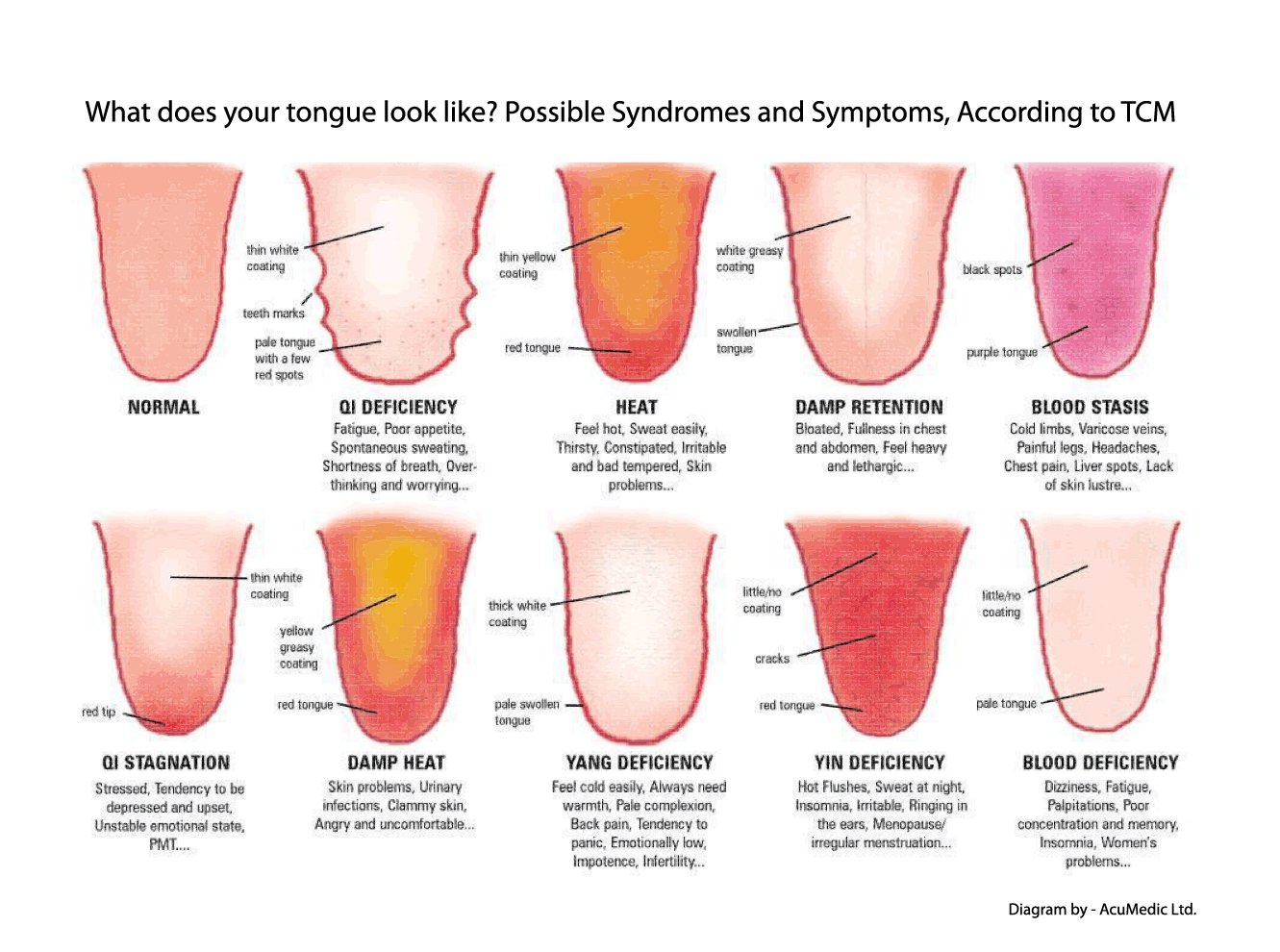How to Diagnose a Tongue in Traditional Chinese Medicine
Imagine this scenario. You walk into the acupuncture treatment room. Maybe you feel a little apprehensive, or you are excited for the relaxation to come. Your acupuncturist has you lie down on the table, a fluffy pillow cradles your head and neck, a bolster hugs and supports your knees from beneath. You’ve answered all the questions about your aches and pains, your sleep, your bowel movements. You let yourself relax as your acupuncturist feels the ins and outs of your pulse on either wrist. Then your eyes pop open wide in surprise as you hear the words, “Would you show me your tongue?” What?!
One of the most common questions we receive in the clinic is, “What are you looking for on my tongue?” We understand it’s an odd request so we are here to shed some light on why the tongue is one of our most utilized traditional Chinese medicine (TCM) diagnostic tools.
Finding Balance: Acupuncture and Chinese Medicine
Traditional Chinese Medicine is about finding balance in the body. In order to find balance, we need to assess where the body is imbalanced. Ideally, we should have a perfect balance of heat, cold, yin, yang, Qi (energy), blood, and body fluids. These should all flow freely from one TCM organ system to the next. The tongue is one of the tools we use to make this assessment.
Chinese Medicine Tongue Map
The tongue is a reverse map of the torso of the body. The tip of the tongue represents the heart, lungs, and emotions. The center of the tongue represents the digestive system. The sides of the tongue represent the liver and gallbladder. The base of the tongue represents the kidneys, bladder, and intestines. We use the appearance of the tongue in each section to give us information about the health of each organ system.
For example, a thick yellow coating at the base of the tongue may indicate chronic constipation or a bladder infection. A red tip of the tongue in the heart area may indicate anxiety or insomnia. A vertical crack in the center of the tongue may indicate digestive weakness.
The ideal tongue should be light red or pink in color with a thin white coating.
Any appearance beyond that is a clue to an imbalance. Have you ever noticed an extra thick coating on your tongue when you have a cold or flu? The tongue is always changing to match what’s going on inside the body.
TCM Tongue Characteristics
Tongue body color
This shows the circulation of Qi and blood
Ex. A very pale tongue may be a lack of Qi like in chronic fatigue or lack of blood like in anemia. A purple tongue may indicate chronic pain or poor blood circulation.
Tongue shape and size
Ex. The tongue should fit in the mouth without swelling and pressing into the teeth. We often see teeth mark indentations in the sides of the tongue which tells us there is digestive system weakness.
Tongue coating thickness and distribution
Ex. A thick white tongue coating can mean retention of fluids in the body or a build-up of pathogens such as yeast/candida. Alternatively, no tongue coating or a peeled coating can show a lack of fluids or what we call “yin deficiency” which is often seen in menopause.
Color of tongue coating
Ex. A yellow coating can show a buildup of heat in the body or in a specific organ. Too much heat in the liver area can sometimes mean liver disease or alcoholism.
Tongue moisture
The tongue should not be overly wet or too dry.
Tongue papules or cracks
The tongue should be free of purple spots, red dots, or little cracks.
Chinese Medicine Doctor or Detective?
As you can see, the tongue provides invaluable information on the state of the body. When used together with other TCM diagnostic techniques, it helps us identify why you are experiencing specific symptoms. When we can treat the “why”, also known as the “root cause”, we have a much better chance to keep symptoms from coming back. TCM is true detective work to find the root of illness and disease.
If you have questions about your tongue or if you are looking for any of the benefits that acupuncture can provide, give our acupuncture clinic a call and book with one of our doctors for a one-on-one evaluation!


